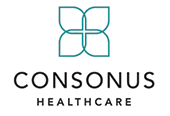Effective July 2017, L&I changed the actuarial scheme for retro. The big change that was made was the program became much more claim-cost performance driven, than in previous years. Under prior regulations, retro sponsors could elect to assume certain levels of risk. As more risk was assumed, greater rewards were possible for a given dollar of claim cost. The old system allowed for gaming the system, in ways, L&I felt did not focus on retro’s true objectives, safety and effective claims management. Currently, gaming the system via risk sharing with L&I is much less attractive. As such many retro programs are attempting to enhance performance through Kept on Salary (KOS) programs.
KOS is a statutory provision that allows state fund insured employers to essentially self-insure their time loss costs. With a KOS program, it is possible to never have a time loss claim, if the program is managed properly and an employer is committed to KOS while the claim is open. Some construction company retro programs have been doing this for years, just to keep their experience ratings at a level that keeps them competitive in contract bidding.
LeadingAge Washington has decided that in order to enhance its retro program performance, it will be implementing a KOS program next fiscal year. Details are still being worked out as to what extent the program will be mandatory or voluntary. Other questions concern what period of time KOS payments should be made for best effect, i.e., 30, 60 or 90 days or longer of time loss. However, over this next year LeadingAge Washington wants to have that discussion with its members.
To that end, LeadingAge Washington has contracted with Bob Hauk to make an analysis for each member as to the financial benefits of a KOS program to our retro performance but also in terms of the benefits to a member’s individual experience rating and associated premium costs. Bob will be contacting most of our members to make an appointment to meet with their C-level staff to explain how KOS works and to describe the benefits KOS can bring to the member’s bottom line.
Just a heads up that if you don’t hear from Bob, it is likely because your premium levels are sufficiently small as to not make a KOS program financially viable for your organization. But that is the whole point to Bob’s visits. He will share with you when and how a KOS program will benefit your community directly. The benefit to retro performance is just the crème and cherry on top.



